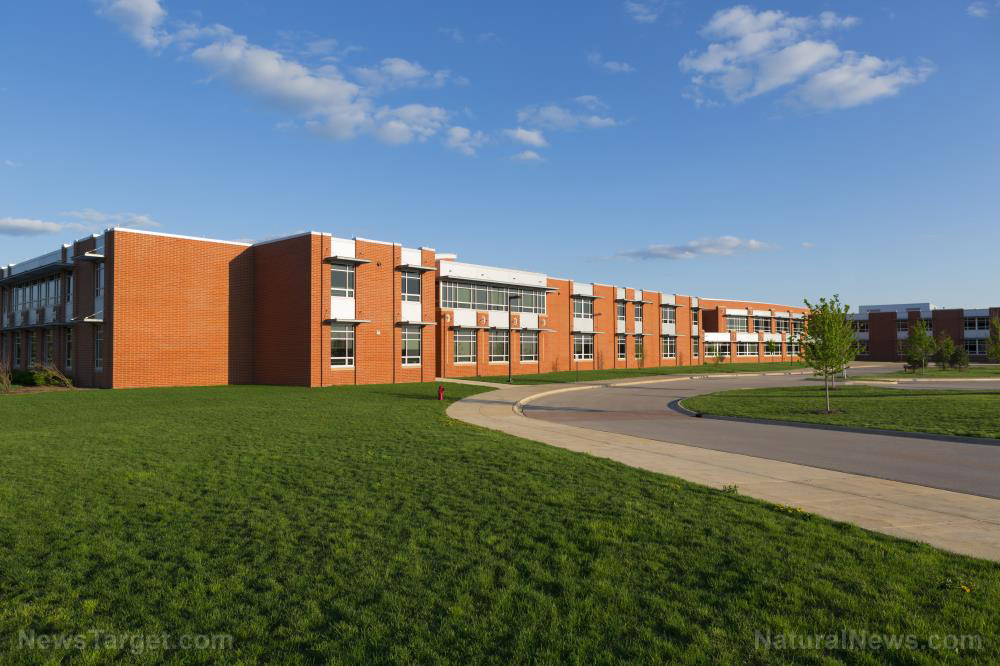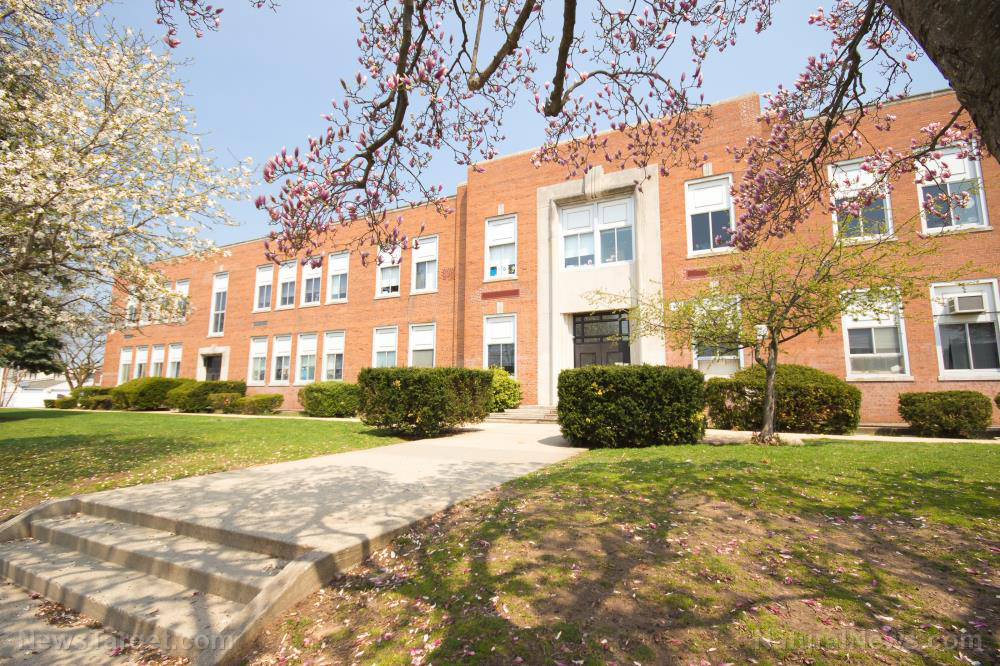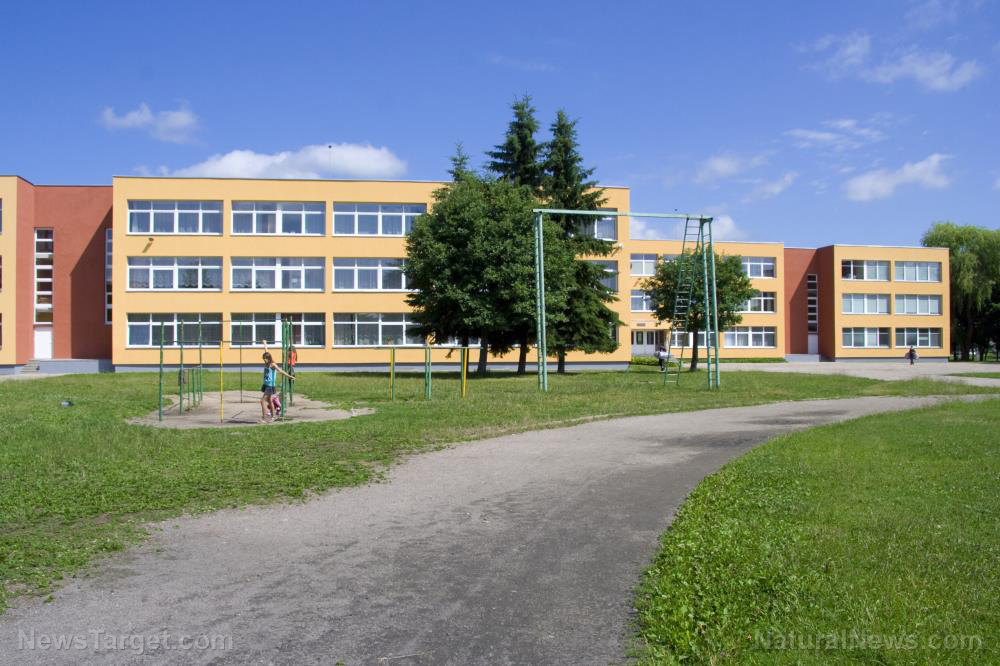Supreme Court says students are free to sue their schools for violating First Amendment
03/11/2021 / By Ethan Huff

In an 8-1 decision, the Supreme Court has established that students can sue educational institutions for violating their free speech rights while only needing to establish “nominal damages” as standing.
Actual damages do not necessarily need to be proven, which reports indicate opens up a whole new avenue of litigation that attorneys all across the country are sure to take advantage of on behalf of individuals whose free speech rights have been violated.
Under normal circumstances, a plaintiff would have to establish some level of real damage to have any standing in a lawsuit. However, Justice Clarence Thomas ruled, with considerable support, that the violation of a core constitutional right – in this case the First Amendment – substantiates enough real damage to grant standing.
Plaintiffs will still need to meet other requirements such as particularized injury and a cognizable cause of action, it is important to note. A request for nominal damages does not automatically guarantee entry into the court, though it does substantially decrease other barriers to entry.
“Our holding concerns only redressability,” the court explained in its ruling. “It remains for the plaintiff to establish the other elements of standing (such as a particularized injury); plead a cognizable cause of action … and meet all other relevant requirements.”
“We hold only that, for the purpose of Article III standing, nominal damages provide the necessary redress for a completed violation of a legal right,” it added.
Watch out, academia: We the People are coming for you
The plaintiff in the presented case upon which the Supreme Court came to this decision was determined to have sustained a violation of his constitutional rights when his school, Georgia Gwinnett College, enforced unconstitutional free speech restrictions against him.
“Because ‘every violation [of a right] imports damage,'” the court ruled, adding that “nominal damages can redress Usuegbunam’s (in the case of Uzuegbunam v Preczewski) injury even if he cannot or chooses not to quantify that harm in economic terms.”
The only dissenter was none other than Chief Justice John Roberts, a Supreme Court turncoat who complained that Article III access can now be purchased for $1.
“Today’s decision risks a major expansion of the judicial role,” he wrote in his dissent, suggesting that cases seeking nominal damages of any amount, including as little as $1, will now flood the courts while failing to alleviate the harms suffered by plaintiffs.
“If nominal damages can preserve a live controversy, then federal courts will be required to give advisory opinions whenever a plaintiff tacks on a request for a dollar,” Roberts added.
Roberts further complained that federal courts will be “required” to perform such a function simply to find out if their rights have been violated. Federal courts, which he describes as “the least dangerous branch,” will “become the least expensive source of legal advice,” he scoffed.
Thomas dismissed this criticism by explaining that it misses the point. He says that because nominal damages were already available at common law “in analogous circumstances,” a simple request for nominal damages “satisfies the redressability element of standing where a plaintiff’s claim is based on a completed violation of a legal right.”
It is a lot of “legalese” to digest, but suffice it to say that this is a big win for everyday Americans whose core constitutional rights have been violated. They represent the first real set of consequences for colleges and universities that thought they could forever infringe on the free speech rights of conservatives, for instance.
“Just the added risk of ending up in federal court might be enough of an incentive to force these universities and colleges to recalculate risk and reward,” reports Hot Air.
More related news can be found at FirstAmendment.news.
Sources for this article include:
Tagged Under: academia, Clarence Thomas, education system, First Amendment, free speech, freedom, human rights, John Roberts, public education, Supreme Court, Uzuegbunam v Preczewski
RECENT NEWS & ARTICLES
COPYRIGHT © 2018 PUBLICEDUCATION.NEWS
All content posted on this site is protected under Free Speech. PublicEducation.news is not responsible for content written by contributing authors. The information on this site is provided for educational and entertainment purposes only. It is not intended as a substitute for professional advice of any kind. PublicEducation.news assumes no responsibility for the use or misuse of this material. All trademarks, registered trademarks and service marks mentioned on this site are the property of their respective owners.





















